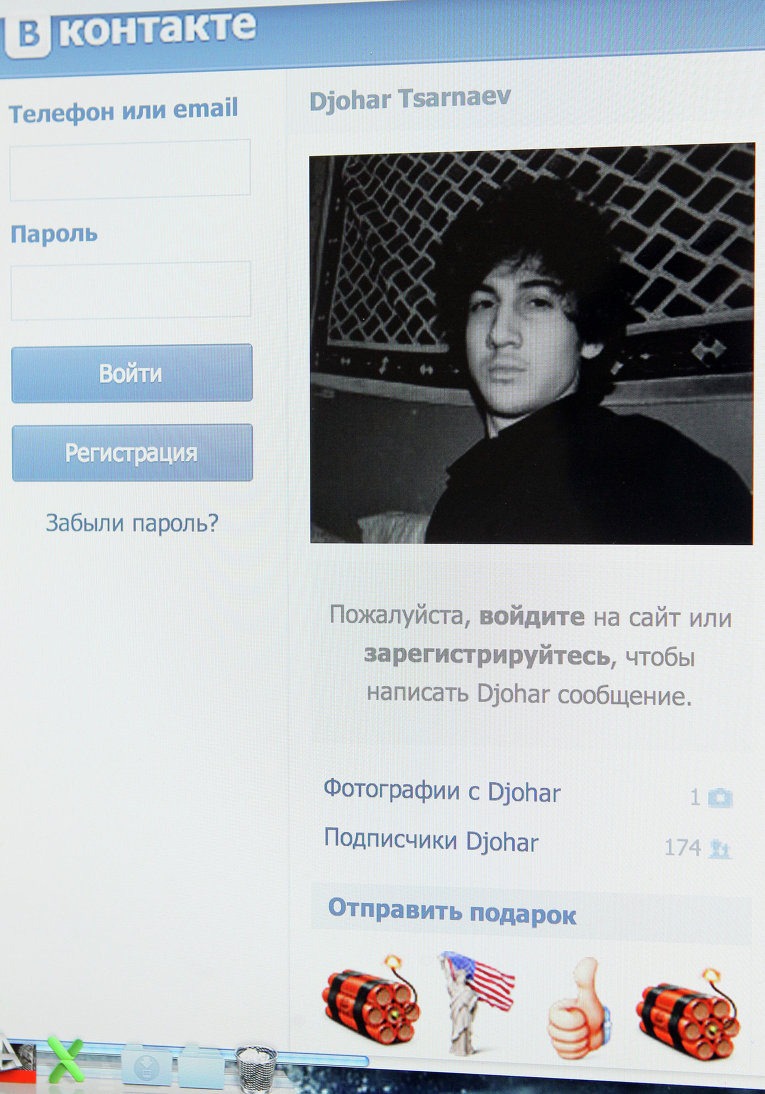MOSCOW, April 10 (RAPSI) – Boston Marathon bombing suspect Dzhokhar Tsarnaev has been granted additional time to seek the suppression of certain evidence that prosecutors are expected to use against him during his upcoming trial.
Tsarnaev’s defense team filed a motion Tuesday seeking an extension due to the complexity of the issues that they plan to raise in motions to suppress evidence. The defense further argued that at least 35 federal and state search warrants had been executed in connection with the case.
Prosecutors agreed that an extension would be acceptable, according to the motion.
Judge George O’Toole of the US District Court for Massachusetts granted the motion Wednesday, extending the deadline for motions to suppress statements to April 23, and the deadline for motions to suppress evidence seized during searches to May 7.
Meanwhile, the Office of Inspector General (OIG) for the US Intelligence Community produced a report claiming that Russia declined to provide information that would likely have led US investigators to more closely scrutinize the threat posed by deceased Boston Marathon bombing suspect and older brother of Dzhokhar, Tamerlan Tsarnaev, The New York Times reported Wednesday.
Russian officials warned the FBI in 2011 of Tamerlan’s increasing religious fervor and his interest in certain underground groups, according to the report.
The OIG report claimed, however, that Russia declined several further requests for information filed by the FBI. At that stage, US law enforcement authorities thought Tamerlan posed a greater threat to Russia than to the US, according to the Times.
Meanwhile, an as-yet unreleased congressional report claims that while Russia warned the US about Tamerlan, he was able to slip through the grasp of law enforcement authorities due to a spelling error, NBC News reported on March 25.
US authorities had listed Tamerlan in a security database with the intention of pulling him aside for questioning as he passed through a New York airport. However, he passed through airport checkpoints without issue because his last name had been misspelled in the database, NBC reported, citing the congressional report.
On the afternoon of April 15, two explosions occurred near the finish line of the Boston Marathon. IEDs devised from pressure cookers, low explosive powder, shrapnel, adhesive, and other materials were hidden in backpacks that were then placed near metal barricades in areas packed with hundreds of spectators.
According to a related indictment, “Each explosion killed at least one person, maimed, burned and wounded scores of others, and damaged public and private property, including the streets, sidewalk, barriers, and property owned by people and businesses in the locations where the explosions occurred.”
Dzhokhar was arrested following a dramatic manhunt, the events of which killed Tamerlan, and claimed the life of an MIT Police Officer Sean Collier. He was charged in a criminal complaint dated April 21 with the use of a weapon of mass destruction and malicious destruction of property resulting in death.
Then on June 27, a federal grand jury returned a 30-count indictment against Dhzokhar, charging him with a plethora of charges related to the bombings and the MIT officer’s death.
At an arraignment hearing on July 10, Dzhokhar pleaded not guilty to all charges pending against him. US prosecutors filed their notice of intent to pursue the death penalty against Tsarnaev on January 30.
In addition to asserting various statutory threshold findings that they argue justify the decision to pursue the death penalty against Tsarnaev, prosecutors advanced a variety of aggravating factors contributing to the decision, ranging from the vulnerability of the Boston Marathon bombing’s youngest victim, to Tsarnaev’s apparent lack of remorse.



